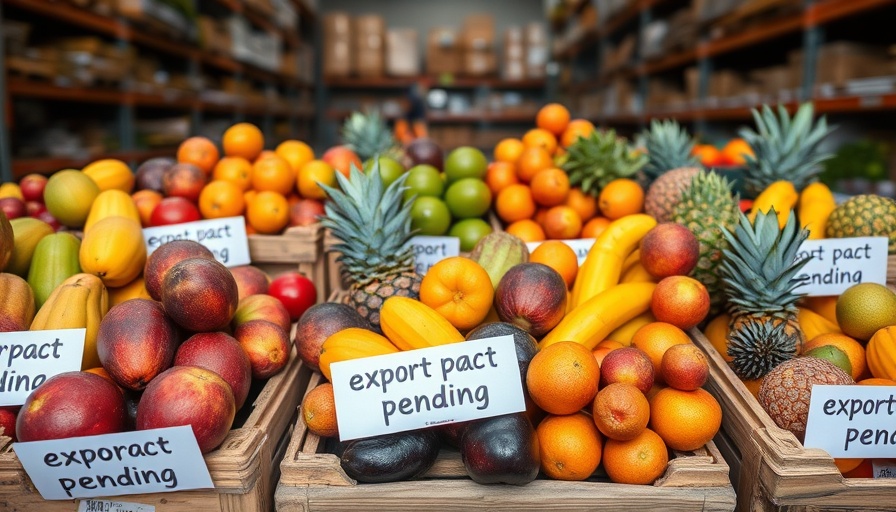
The Crucial Role of SMMEs in Economic Growth
Small, medium, and micro enterprises (SMMEs) are the backbone of South Africa's economy. As contributors to job creation and economic stability, understanding their tax obligations is vital for their sustainability. The South African Revenue Service (SARS) emphasizes that timely tax compliance is not just an obligation; it’s an opportunity for SMMEs to strengthen their reputations and ensure their long-term success.
Navigating the Tax Landscape
Tax compliance can seem like a daunting task for many SMME owners, particularly young entrepreneurs. As critics have noted, the youth often focus intensely on maximizing sales and managing cash flow, which leaves little room for ensuring adherence to SARS requirements. Missing deadlines or misunderstanding tax obligations can lead to severe penalties, including hefty fines and even business closure due to gross non-compliance. Therefore, SMME owners must view tax compliance as a strategic tool for growth, not merely a burden of payment to the government.
Provisional Taxes Explained
One element of the tax system that SMME owners must master is provisional tax. This system allows businesses to estimate their tax liability and pay it in installments throughout the year, reducing the financial strain of a large single payment at year-end. Non-compliance can lead to penalties ranging from R250 to over R16,000 monthly, depending on the taxable income and duration of the non-compliance. Entrepreneurs are encouraged to take advantage of SARS's digital platforms, such as eFiling, to manage their provisional tax efficiently.
The Importance of Registering for Turnover Tax
Another beneficial tax feature specifically for SMMEs is the Turnover Tax, targeted at micro businesses with an annual turnover up to R1 million. This simplified tax system replaces multiple tax types, offering a streamlined approach that can significantly ease a small business's tax compliance. By registering for the Turnover Tax before the fiscal year begins, entrepreneurs can benefit from reduced administrative challenges while complying with tax regulations. This tax regime, where the tax rate ranges from 0% to 3%, serves to encourage and support business growth.
Tackling Common Mistakes
Young entrepreneurs often grapple with common pitfalls like not meeting deadlines or misclassifying business expenses. Such errors can be detrimental, leading not only to fines but also to loss of opportunities. For instance, a lack of awareness about provisional tax obligations can impact cash flows adversely. Hence, it is crucial for SMMEs to stay well-informed and utilize services like Govchain, which provide valuable insights and support to navigate the complexities of tax compliance effectively.
Building a Compliant Business Reputation
Tax compliance significantly influences an SMME's reputation, impacting its chances for contract negotiations with larger companies or government entities requiring tax clearance certificates. This point is crucial, especially in times when public perception can greatly affect business viability. As Stefan Kritzinger highlights, avoiding the perception of being lax with tax obligations can protect an SMME’s integrity and financial health.
The Path Forward for SMMEs
The landscape for SMMEs demands not only compliance but innovativeness. As the economic pressures increase, the importance of understanding tax rules and maintaining compliance becomes paramount. Young entrepreneurs hold a pivotal role in rebuilding the economy and must leverage their creativity while adhering to SARS regulations.
Concluding Thoughts on Tax Compliance for Growth
In conclusion, the road to success for South African SMMEs lies in their ability to navigate the tax landscape effectively. Being compliant means avoiding penalties, building a credible reputation, and opening doors for future opportunities. Entrepreneurs are encouraged to capitalize on the resources available to them, such as SARS guides and compliance services. Ensuring your taxes are up-to-date is not just about avoiding fines; it’s an essential aspect of cultivating a successful enterprise. Take the necessary steps today to safeguard your business’s future.
 Add Row
Add Row  Add
Add 




Write A Comment